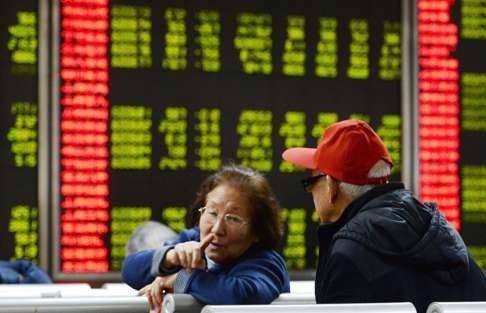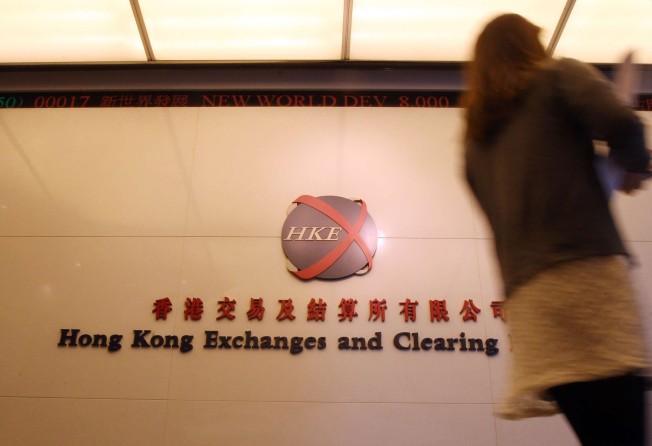
Mainland China stocks hit three-week high on MSCI inclusion speculation
Mainland shares post their biggest intraday gains since March 2, though rally seen as short-lived

Mainland Chinese stocks rose to a three-week high, spurred by increased chances that MSCI – an independent provider of investment tools for institutional investors – will include Chinese A-shares in its emerging market index following a mid-June review.
But analysts were cautious over the sustainability of the gains, which also gave a boost to Hong Kong stocks, saying that they are most likely reactionary.
China’s benchmark Shanghai Composite Index jumped 3.34 per cent, or 94.17 points, to 2,916.62 at Tuesday’s close, the largest intraday gain since March 2.
The CSI 300, which tracks large companies listed in Shanghai and Shenzhen, gained 3.36 per cent or 102.85 points to 3,169.56. Both indices reached three week highs.
Total turnover in Shanghai and Shenzhen was almost double that of Monday, reaching 631 billion yuan (HK$744.4 billion).

The Goldman report pointed out that Chinese securities regulators have launched rules to regulate suspension activities and clarified beneficial ownership of assets in accounts, which make it simpler for international investors to go into China’s tightly controlled stock markets.
The MSCI, which deliberates on June 14, last year decided to exclude mainland stocks in its equity index as many barriers still remained.
Hong said that the current rally may not last long, and the A share market still lacks momentum.
“Investors should not be convinced by a single-day’s gain,” Hong said. “A level of 2,800 points is certainly not the bottom for the Shanghai Composite Index.”
The A-share market has hovered around 2,800 points for three weeks, with little intraday volatility. Investors stepped in to take profits once the index inched up. In such a situation, no one would splash out a large amount of capital to buy into the market, Hong said.
Ivan Li, an equities analyst at Tung Shing Securities, echoed Hong’s comments, adding that Tuesday’s surge was likely more reactionary as additional rumours of a launch of the much anticipated Shenzhen and Hong Kong stock connect scheme also fuelled the gains.
Investors should not be convinced by a single-day’s gain
The information technology sector soared 5.71 per cent, leading the gains in the mainland market.
“[New technology] stocks are the key stocks that foreign investors will likely invest in [through the Shenzhen Hong Kong stock connect scheme],” Li said.
In Hong Kong, stocks extended gains for an eighth consecutive day. The Hang Seng Index rose 0.9 per cent, or 185.7 points, to 20,815.09 while the Hang Seng China Enterprises Index gained 0.93 per cent, or 80.14 points, to 8,704.9.
Turnover totalled HK$103.13 billion, also almost twice the amount seen on Monday.
Insurers and other financial institutions advanced by 1.85 per cent and 1.94 per cent respectively.
Among stocks with the largest turnover, Ping An Insurance (Group) Company’s shares rose 2.36 per cent to close at HK$34.7 per share. Life insurance giant AIA’s shares moved up 1.45 per cent.
Li added that the rally in Hong Kong stocks was supported by fundamentals, and was more solid than the gains in mainland markets.
“The stocks leading the market today are the heavyweights in the [Hong Kong] indices. The gain is more sustainable [than in China],” he said.